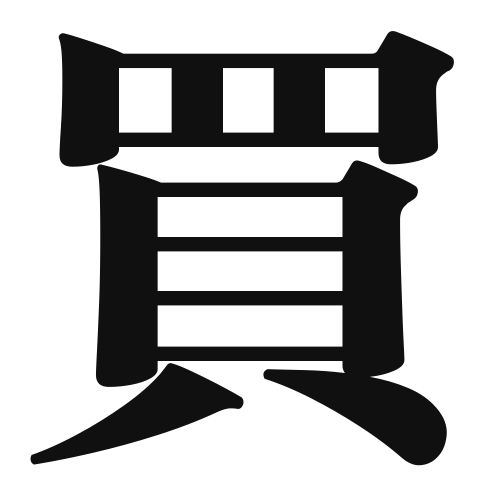1. Overview of Meaning
The kanji 買 (pronounced “kai” in Japanese) means “to buy” or “to purchase.” It represents the action of acquiring goods or services in exchange for money.
2. Formation and Radical
The kanji 買 is a phonetic compound (形声文字), which means it combines a meaning component and a sound component. The left part, 買, is derived from the radical 貝 (shell), which is often associated with money or valuables. The right part indicates the pronunciation.
The radical 貝 is commonly found in kanji related to money and trade.
3. Examples of Usage
Common words and phrases that include 買 are:
- 買い物 (かいもの, “shopping”)
- 買う (かう, “to buy”)
- 購入 (こうにゅう, “purchase”)
Example sentences in daily conversation:
- 「この本を買いたいです。」 (I want to buy this book.)
- 「明日、買い物に行きます。」 (I will go shopping tomorrow.)
4. Synonyms and Antonyms
Similar kanji with related meanings include:
- 取得 (しゅとく, “acquire”) – This term emphasizes the act of obtaining something, often through effort.
- 獲得 (かくとく, “gain”) – This term refers to gaining something, often through competition or struggle.
Antonyms include:
- 売 (うる, “to sell”) – This kanji represents the opposite action of buying.
5. Cultural and Historical Background
The kanji 買 is deeply rooted in Japanese culture, where commerce and trade have played significant roles throughout history. The concept of buying is not just about transactions but also about relationships and social interactions.
Proverbs and idiomatic expressions related to buying include:
- 買うよりも得る (かうよりもえる, “to gain rather than to buy”) – This expression emphasizes the value of gaining knowledge or experience over material purchases.
